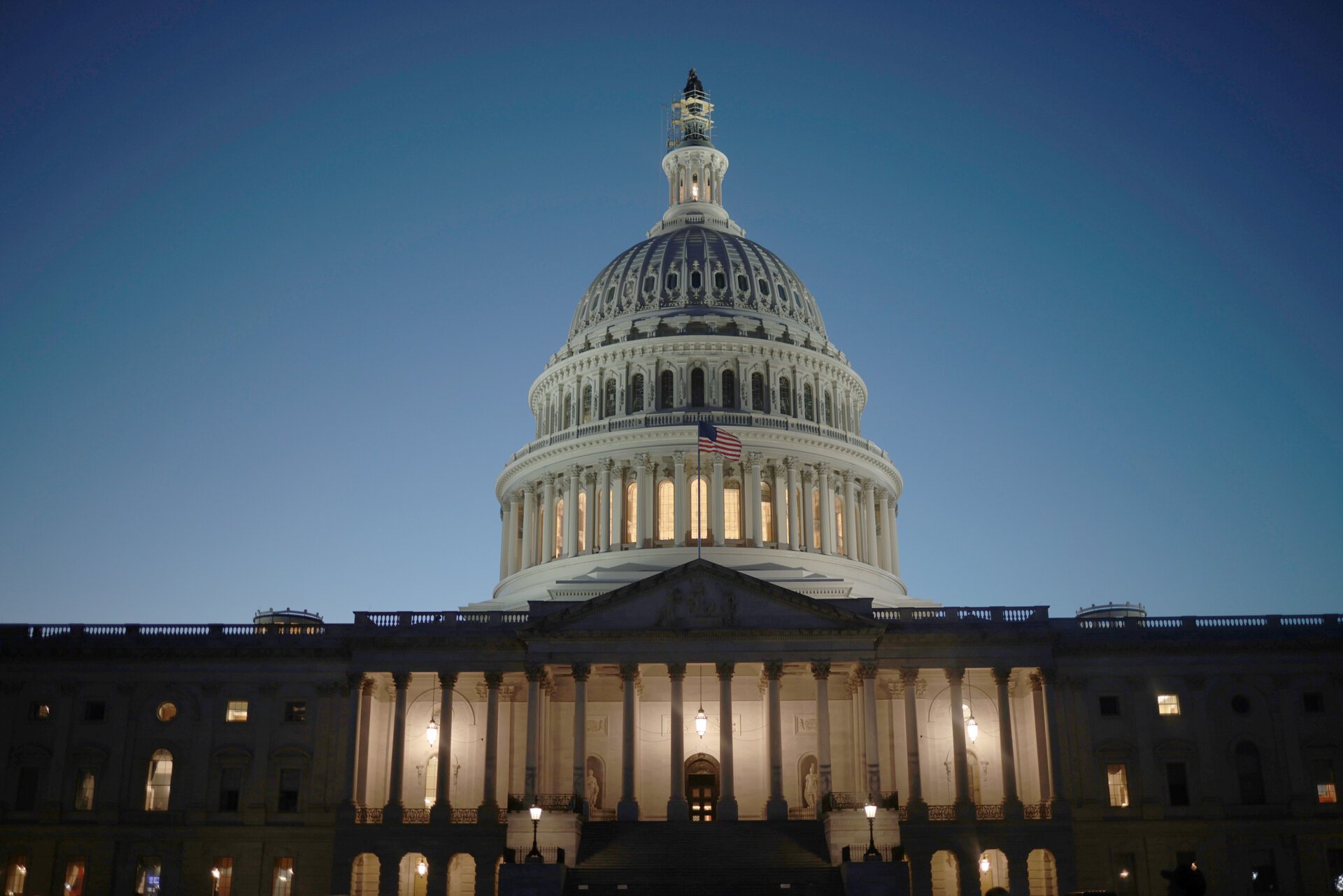1 in 6 Congresswomen Targeted by AI-Generated Sexually Explicit Deepfakes

Greater than two dozen members of Congress have been victims of sexually specific spoofing — and the overwhelming majority of these affected are girls, in keeping with a brand new examine that highlights the stark gender disparity within the know-how and the rising dangers for girls’s participation in politics and different types of civic engagement.
The American Daylight Venture (ASP), a suppose tank that researches disinformation and advocates for insurance policies that promote democracy, launched findings Wednesday that recognized greater than 35,000 mentions of nonconsensual intimate photos (NCII) depicting 26 members of Congress — 25 girls and one man. – that had been not too long ago discovered on deepfake web sites. A lot of the photos had been shortly eliminated after researchers shared their findings with affected members of Congress.
“We’ve to reckon with this new surroundings and the truth that the Web has opened up so many of those harms that disproportionately goal girls and marginalized communities,” mentioned Nina Jankowicz, an knowledgeable on misinformation and on-line harassment who based The American Daylight . The venture and is the creator of the examine.
Non-consensual intimate photos, additionally identified colloquially as pretend pornography, though legal professionals favor the previous, could be created by generative AI or by superimposing headshots on media of grownup performers. There’s presently a restricted coverage to restrict its creation and unfold.
ASP shared the first-of-its-kind findings solely with The nineteenth. The group collected information partly by creating a customized search engine to search out members of the 118th Congress by first and final identify, and abbreviations or nicknames, on 11 identified deepfake websites. Neither occasion affiliation nor geographic location had an influence on the chance of being focused for abuse, though youthful members had been extra prone to be victimized. The most important issue was gender, with girls members of Congress 70 occasions extra seemingly than males to be focused.
To keep away from encouraging searches, the ASP didn’t launch the names of the lawmakers featured within the footage. They contacted the places of work of all these affected to warn them and supply them with sources about on-line hurt and psychological well being help. The examine’s authors notice that quickly after, photos focusing on most members had been eliminated fully or virtually fully from the pages — a truth they’re unable to elucidate. The researchers notice that such removals don’t stop the fabric from being distributed or reloaded. In some instances involving lawmakers, search outcomes pages remained listed on Google regardless of the content material being largely or fully eliminated.
“Elimination could also be unintentional. No matter what precisely led to the elimination of this content material – be it ‘stop and desist’ letters, claims of copyright infringement, or different contact with websites internet hosting pretend abuse – it highlights a stark disparity of privilege. ,” in keeping with the examine. “Individuals, particularly girls, who lack the sources accessible to members of Congress, could be unlikely to get this fast of a response from the creators and distributors of the AI-generated NCII in the event that they themselves initiated a request for elimination.
Based on the examine’s preliminary findings, almost 16 p.c of all girls presently serving in Congress — or about 1 in 6 congresswomen — are victims of AI-generated nonconsensual intimate photos.
Jankowicz has been the goal of on-line harassment and threats for her home and worldwide work debunking disinformation. She has additionally spoken publicly about being the sufferer of false abuse – a truth she revealed through a Google Alert in 2023.
“You could be made to look in these compromised, intimate conditions with out your consent, and people movies, even if you happen to had been to pursue a copyright declare in opposition to the unique poster, – as in my case – they unfold throughout the Web with out you management and with none sort of penalties for individuals who amplify or create pretend pornography,” she mentioned. “This continues to be a hazard to anybody who’s within the public eye, who’s collaborating in public discourse, however particularly for girls and for girls of coloration.”
Picture-based sexual abuse can have devastating psychological well being results on victims, which embody bizarre folks not concerned in politics – together with youngsters. Up to now 12 months, there have been stories of highschool ladies being focused for sexual abuse primarily based on photos in states like California, New Jersey and Pennslyvania. Faculty officers have had various levels of response, although the FBI has additionally issued a brand new warning that sharing such photos of minors is prohibited.
The complete influence of “deepfakes” on society continues to be in focus, however analysis already reveals that 41 p.c of girls between the ages of 18 and 29 self-censor to keep away from on-line harassment.
“That is an especially highly effective risk to democracy and free speech if we’ve almost half the inhabitants staying silent as a result of they concern the harassment they could expertise,” mentioned Sophie Maddocks, analysis director on the Middle for Endangered Media on the College of Pennsylvania. .
There is no such thing as a federal legislation that gives felony or civil penalties for somebody who generates and distributes non-consensual AI-generated intimate photos. A few dozen states have handed legal guidelines in recent times, although most contain civil, not felony, penalties.
AI-generated non-consensual intimate photos additionally open up threats to nationwide safety by creating circumstances for blackmail and geopolitical concessions. This may have ripple results on coverage makers, no matter whether or not they’re instantly the goal of the pictures.
“My hope right here is that members will probably be moved to motion after they notice that it isn’t simply affecting American girls, it is affecting them,” Jankowicz mentioned. “It’s affecting their colleagues. And it is occurring just because they’re within the public eye.”
Picture-based sexual harassment is a singular threat for girls working for workplace. Susanna Gibson narrowly misplaced her legislative race after a Republican operative shared non-consensual reside intercourse tapes that includes the Virginia Democrat and her husband with The Washington Submit. Within the months after her loss, Gibson informed The nineteenth that she heard from younger girls discouraged from working for workplace for concern of intimate photos getting used to harass them. Gibson has since began a nonprofit group devoted to combating image-based sexual abuse and an accompanying political motion committee to help girls candidates in opposition to violations of intimate privateness.
Maddocks has studied how girls who communicate in public usually tend to expertise digital sexual violence.
“We’ve a for much longer mannequin of ‘girls must be seen not heard’ which makes me consider Mary Beard’s writings and analysis on the concept girls are at odds with public talking. So when girls communicate publicly, it is virtually like, ‘OK. Time to embarrass them. Time to strip them. Time to carry them dwelling. Time to disgrace them into silence.’ And that silence and that shameful motivation … we have to perceive that to be able to perceive how this hurt is manifesting itself because it pertains to congresswomen.”
ASP is encouraging Congress to cross federal laws. The Clear Pretend Photos and Non-Consensual Enhancing Act of 2024, also called the DEFIANCE Act, would permit folks to sue anybody who creates, distributes or receives such photos. The Take It Down Act would come with felony legal responsibility for such exercise and require tech corporations to take down deep counterfeiting. Each payments have handed the Senate with bipartisan help, however should navigate issues about free speech and definitions of hurt, that are typical obstacles to tech coverage, within the Home.
“It could be a dereliction of responsibility for Congress to let this session expire with out passing at the very least one in every of these payments,” Jankowicz mentioned. It isn’t a future hurt. It isn’t one thing we’ve to think about.”
Within the absence of congressional motion, the White Home has partnered with the non-public sector to plot inventive options to curb image-based sexual abuse. However critics aren’t optimistic about Huge Tech’s capability to repair itself, given the historical past of harm attributable to its platforms.
“It is really easy for authors to create this content material and the sign isn’t just in regards to the particular person girl being focused,” Jankowicz mentioned. “It is for girls all over the place saying, ‘In the event you take this step, if you happen to communicate up, it is a consequence you could have to take care of.’
In case you have been a sufferer of image-based sexual abuse, Cyber Civil Rights Initiative maintains a listing of authorized sources.
This text was initially printed on The Markup and is republished beneath Inventive Commons Attribution-NonCommercial-NoDerivatives license.
(tagsTranslate) Synthetic Intelligence Congress




